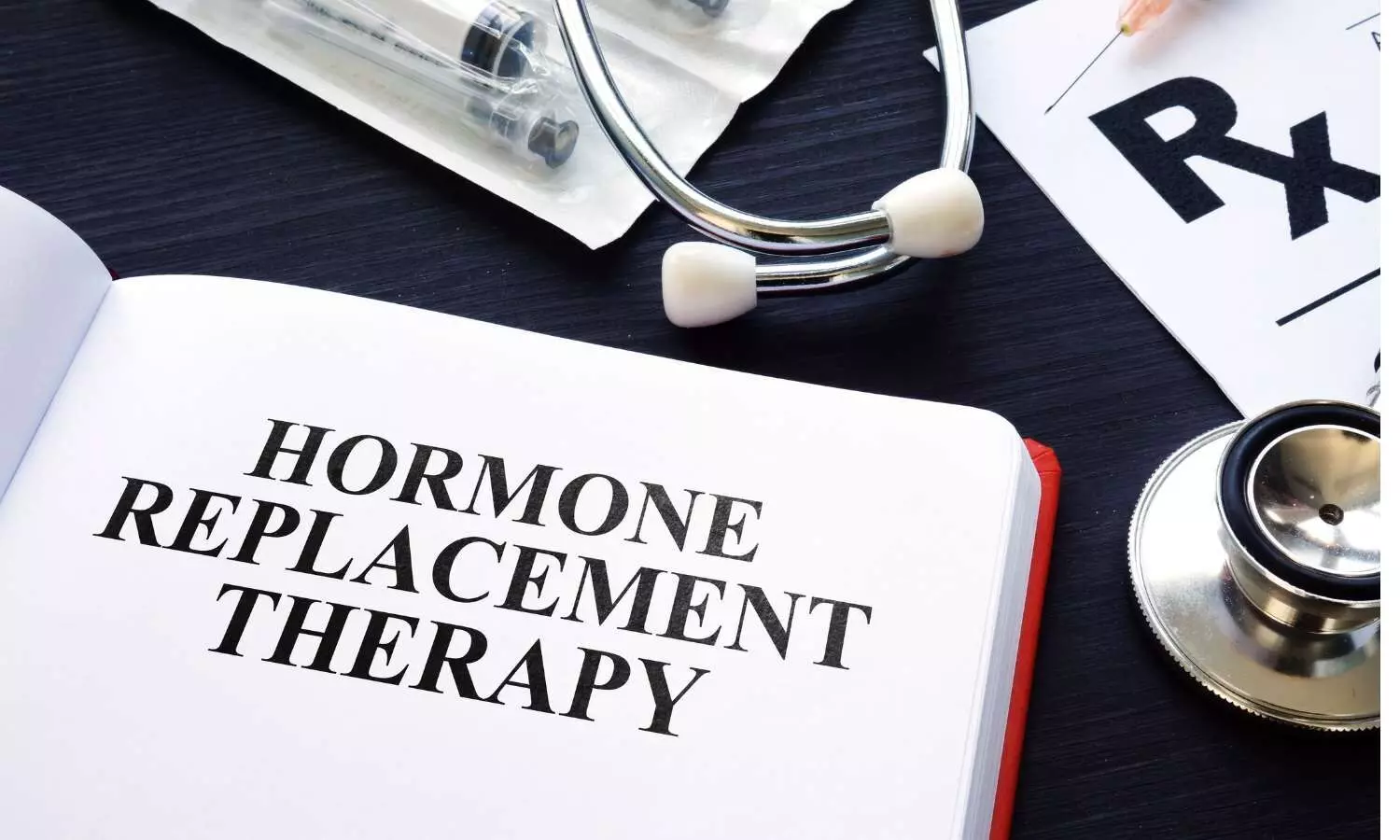Hormone replacement therapy may help restore immunity in menopausal women: Study
- byDoctor News Daily Team
- 12 October, 2025
- 0 Comments
- 0 Mins

A study led by researchers at Queen Mary University of London has found thathormone replacement therapy(HRT) may help reverse changes in the immune system caused bymenopause, potentially booting immune health. The research reveals new evidence that menopause significantly alters women’s immune system, increasing their vulnerability to infections. The study, published inAging Cellis the first detailed analysis of how ageing and sex differences influence monocytes, a key group of immune cells that act as the body’s first responders to infection. Analysing blood samples from younger adults less than 40 years of age and older adults aged 65 and above, the team found that after menopause, women develop more inflammatory types of white blood cells called monocytes, which are less effective at clearing bacteria. These changes were linked to lower levels of complement C3, an immune protein that helps monocytes engulf and destroy harmful microbes. In contrast, men of the same age did not show these changes, suggesting menopause has a uniquely disruptive effect on female immunity. To test whether hormone therapy could influence this decline, the researchers studied peri-and post-menopausal women taking HRT. They found that these women had healthier immune profiles, with fewer inflammatory monocytes and stronger infection-fighting ability as compared to age-matched controls. Levels of complement C3 in their blood were also higher in those taking HRT, bringing them close to the immune status of younger women. Dr Emma Chambers, Senior Lecturer in Immunology at Queen Mary and lead author of the study said: “Our findings highlight menopause as a critical turning point for women’s immunity. While ageing affects everyone, the loss of female hormones appears to accelerate immune decline in women. Encouragingly, hormone therapy seems to restore key aspects of immune health, offering benefits that go beyond easing menopausal symptoms.” Fiona Miller Smith, Chief Executive of Barts Charity, said: “We’re proud to have supported this pioneering research. This is a brilliant example of how funding innovative ideas in health can lead to advances in our understanding – this time around menopause and women’s immune systems. These findings could have a huge impact for women in our East London community and beyond.” Menopause typically occurs in women between the ages of 45 and 55 and is often preceded by a decade-long peri-menopausal phase. Symptoms such as hot flushes, joint pain, fatigue and brain fog can have a profound effect on quality of life. In the UK alone, more than four million women are in this age bracket, and women over 50 make up a growing proportion of the workforce. Yet they are also among the most likely to experience work disruption due to menopausal symptoms. HRT is already prescribed to manage symptoms, but this study suggests it may also help maintain immune health and reduce infection risk in later life. The researchers caution, however, that more work is needed to confirm whether HRT reduces real-world infection rates, and to understand how different formulations or delivery methods affect the immune system. The authors caution that while the findings are promising, the study does not mean HRT should automatically be prescribed for immune health. More research is needed to confirm whether women taking HRT have lower infection rates in real-world settings, and to investigate how different types and route of HRT administration may affect the immune system. R. P. H. De Maeyer, J. Sikora, O. V. Bracken, B. Shih, A. F. Lloyd, H. Peckham, K. Hollett, K. Abdelhamid, W. Cai, M. James, P. E. Pfeffer, M. Vukmanovic-Stejic, A. N. Akbar, E. S. Chambers, Age-Associated Inflammatory Monocytes Are Increased in Menopausal Females and Reversed by Hormone Replacement Therapy, Aging Cell, https://doi.org/10.1111/acel.70249
Disclaimer: This website is designed for healthcare professionals and serves solely for informational purposes.
The content provided should not be interpreted as medical advice, diagnosis, treatment recommendations, prescriptions, or endorsements of specific medical practices. It is not a replacement for professional medical consultation or the expertise of a licensed healthcare provider.
Given the ever-evolving nature of medical science, we strive to keep our information accurate and up to date. However, we do not guarantee the completeness or accuracy of the content.
If you come across any inconsistencies, please reach out to us at
admin@doctornewsdaily.com.
We do not support or endorse medical opinions, treatments, or recommendations that contradict the advice of qualified healthcare professionals.
By using this website, you agree to our
Terms of Use,
Privacy Policy, and
Advertisement Policy.
For further details, please review our
Full Disclaimer.
Recent News
Lower ketone levels and improved exercise capacity...
- 01 November, 2025
Citrus Flavonoids effective nutritional adjunct to...
- 01 November, 2025
Daily kimchi intake linked to reduced BMI and bell...
- 01 November, 2025
Aggressive Risk Factor Management Reduces AF Recur...
- 01 November, 2025
Daily Newsletter
Get all the top stories from Blogs to keep track.


0 Comments
Post a comment
No comments yet. Be the first to comment!